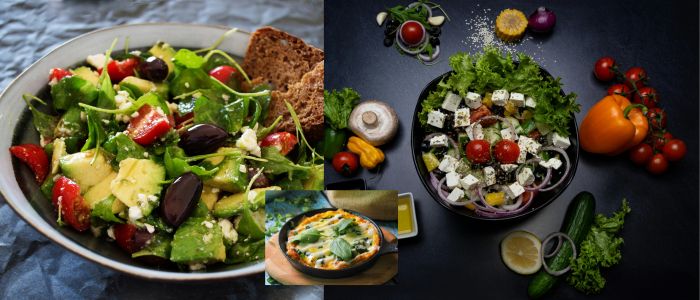It's Not Just Obesity That F Cancers Prevents
The research, which included data from more than 450,000 people in 10 European countries, discovered that those who adhered most closely to the Mediterranean diet had about 6% lower risk of being diagnosed with an obesity-related cancer, compared to those who did not follow the diet. This included cancers ranging from prostate, cervix to colorectal. To their surprise, the benefits held regardless of the individuals' body mass index (BMI) and fat distribution.
This hints that factors such as decrease inflammation, better metabolism and beneficial effects on the gut microbiome could be at play, said Inmaculada Aguilera-Buenosvinos, the lead author and a postdoctoral researcher at the University of Navarra and at the World Health Organization’s International Agency for Research on Cancer. Even small reductions in the risk of cancer can be substantial when extrapolated to the population level,Agui-lera-Buenosvinos says.
A Plant-Based Eating Pattern
The Mediterranean diet focuses on fruits, vegetables, whole grains, beans, seeds, nuts and, in particular, extra-virgin olive oil. It restricts red meat, processed foods, butter and sugars. Oily fish, high in omega-3 fatty acids are recommended, with eggs, dairy, and poultry being consumed in lesser amounts than in many Western diets.
Wellness pros such as Lindsey Wohlford say plant-based diets are rich in fiber, which is great for digestion and ccontrubutes to good gut health. These foods are also high in antioxidants and phytonutrients — which can help tamp down inflammation, a cancer-promoting factor.
Dr. Neil Iyengar, an oncologist, described how Western diets, which emphasize processed foods, can lead to oxidative damage, a risk factor for cancer. He also noted that such diets may help to undo the damage, and that they might even enhance the effectiveness of cancer treatments.
The secret to making it work over the long haul is consistency
The research, which is part of the European Prospective Investigation into Cancer and Nutrition (EPIC), showed that following the Mediterranean diet for the long-term was the most beneficial. And occasional departures from the diet, or so-called “cheat meals,” did not seem to have much impact on the protective effect. Of note, the protective effects were particularly pronounced in the case of smokers, who presumably have a higher baseline risk of cancer.
Still, the diet did not lead to a decrease in hormone-related cancers, like breast cancer, going against previous research. The answer to this finding is unknown, so researchers say there may be a need for the follow-up research.
How to Begin the Mediterranean Diet
For those interested in adopting this eating pattern, experts suggest easing into things. Throw in blueberries at breakfast, snack on nuts, and start including greens in lunch. Dinner might be heavier on vegetables, whole grains and legumes, with fruit as dessert.
Wellness experts say that what they are aiming for is consistency, not short-term goals. It's a way of eating that can be helpful in reducing cancer risk and promoting better health overall.
Stay informed with Newsbuck – your go-to destination for the latest global news, trends, and updates across politics, entertainment, health, tech, and more. Explore smarter stories every day at Newsbuck.









